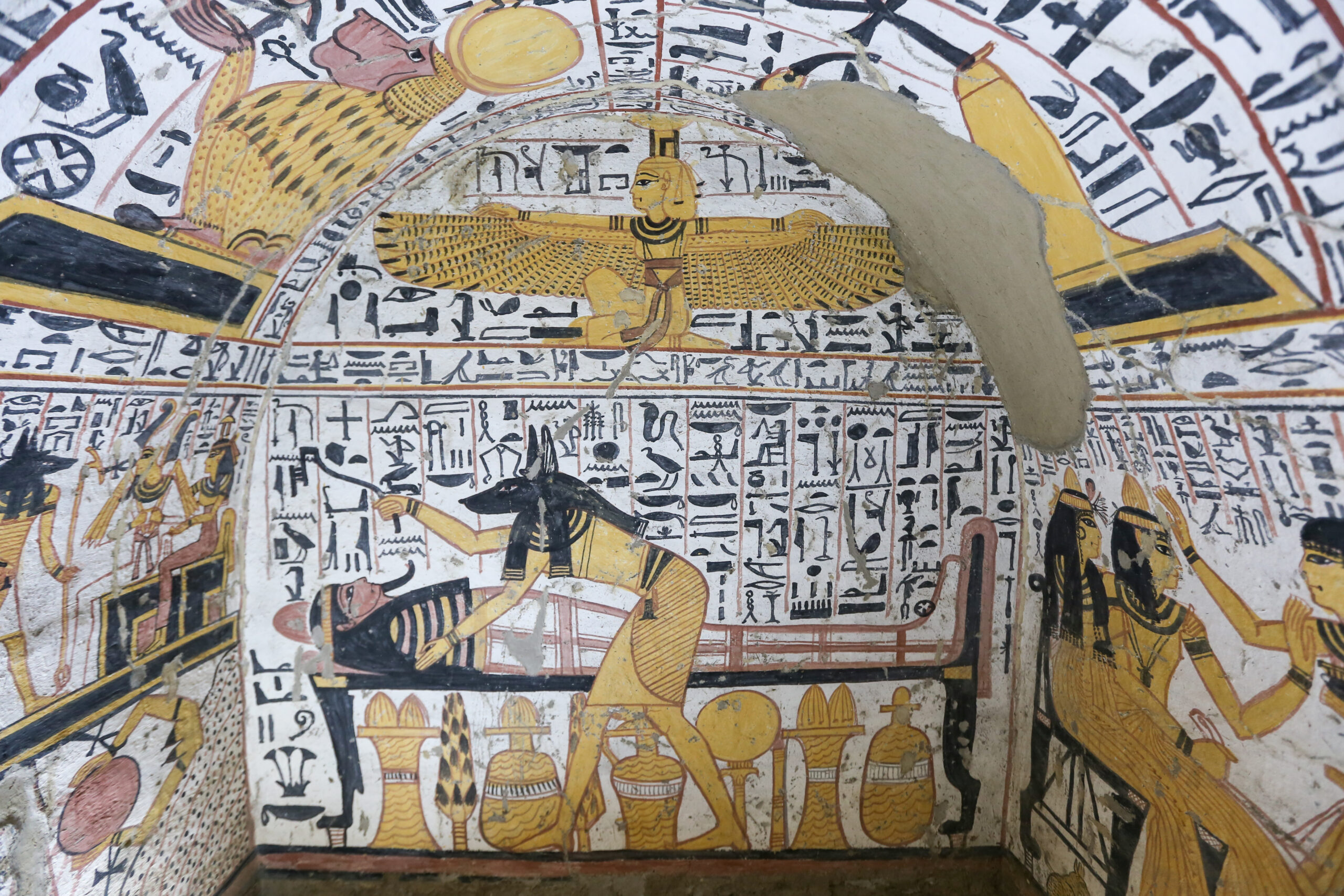We often hear about workers going on strike in the news. If the workforce want change then one way to influence it is by going on strike. Striking is a modern phenomenon, surely? Perhaps not – what if the Ancient Egyptians went on strike?
Not all Ancient Egyptians were farmers. There were lots of craftsmen building pyramids and temples, making weapons, building boats and writing letters. Egyptian society depended on them. They built the tombs, they painted the walls, they mummified the dead. In fact, they were everywhere! One special place full of craftsmen was the village of Deir el-Medina.

Deir el-Medina was a village just outside the Valley of the Kings, where Tutankhamun and other pharaohs from the New Kingdom were buried. There were about 70 houses built inside a wall, just a mile or two from their workplace. There were carpenters, quarrymen, stonemasons, draughtsmen, potters, scribes, even a doctor. These people were employed directly by the pharaoh to construct the tombs in the Valley of the Kings. It was in Deir el-Medina that the first recorded strike in history happened.

The people of Deir el-Medina were quite well off. Each family had a slave, paid for by the pharaoh, who came twice a week to grind their wheat into flour. They also had a laundry slave once a week, so keeping clothes clean was not a problem. They might keep a few animals for food, and in their spare time they often made items to sell in nearby villages. Perhaps one of the most surprising things about Deir el-Medina is that most of the men – and many of the women – could read and write. This was very unusual in Ancient Egypt where the literacy rate was around 1%!
They were paid in rations: every month they received wheat (for bread), barley (for beer), fish, vegetables, firewood and oil (for cooking and to use in their lamps). There were people specially employed by the pharaoh to deliver their rations to them – even water, as there was no water in the village – all of it had to be brought up from the Nile. On their days off the men would sometimes go hunting in the desert so there might be some meat to eat.
One day the rations were late, so people complained to the pharaoh’s staff. The scribe wrote a letter asking for the rations to be delivered promptly. They didn’t arrive. Fed up with having to buy their own food and water, and of course, to carry this up from the Nile Valley below, the men finally had had enough. They went on strike. They refused to work on the burial chambers until their rations were delivered. Within three days the missing rations turned up, and the men went back to work.
So next time you hear about a strike think about the hungry craftsmen of Deir el-Medina and the pharaoh, desperate to get his burial chamber completed before he died!




